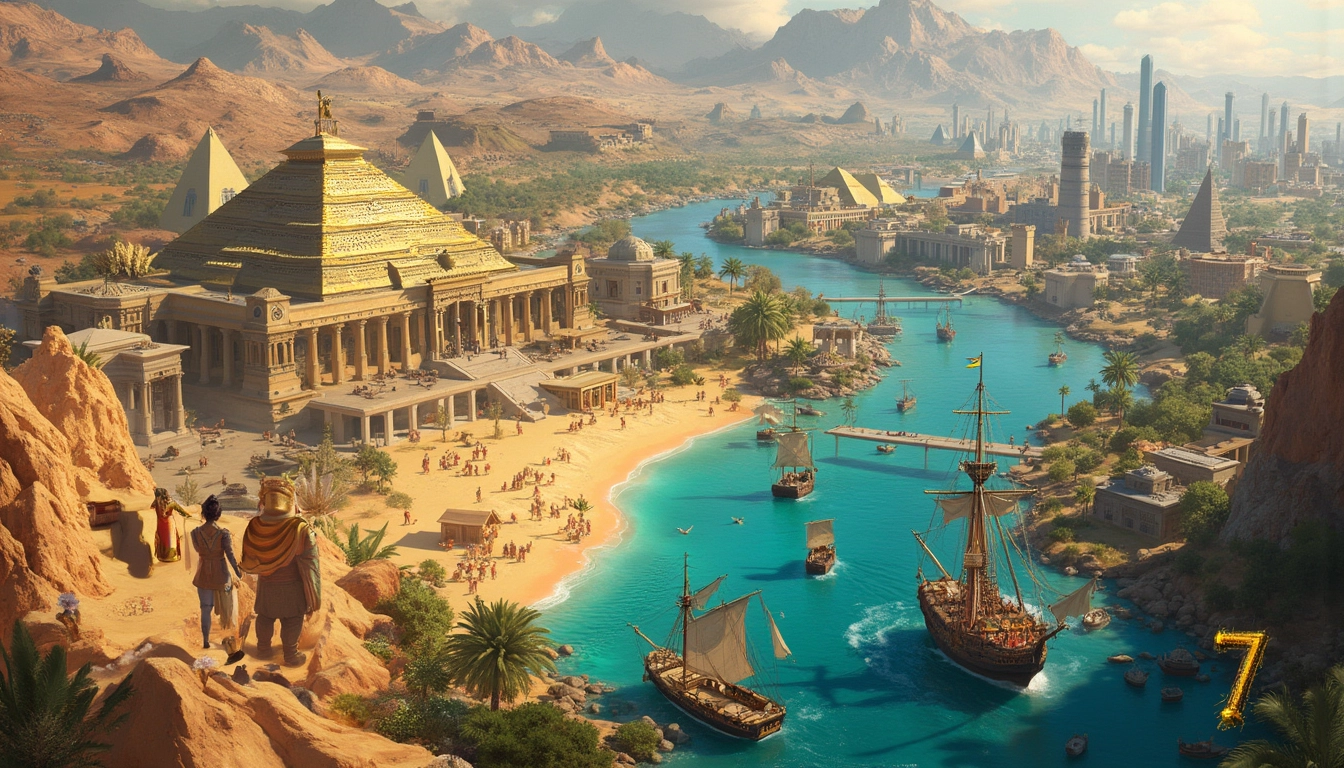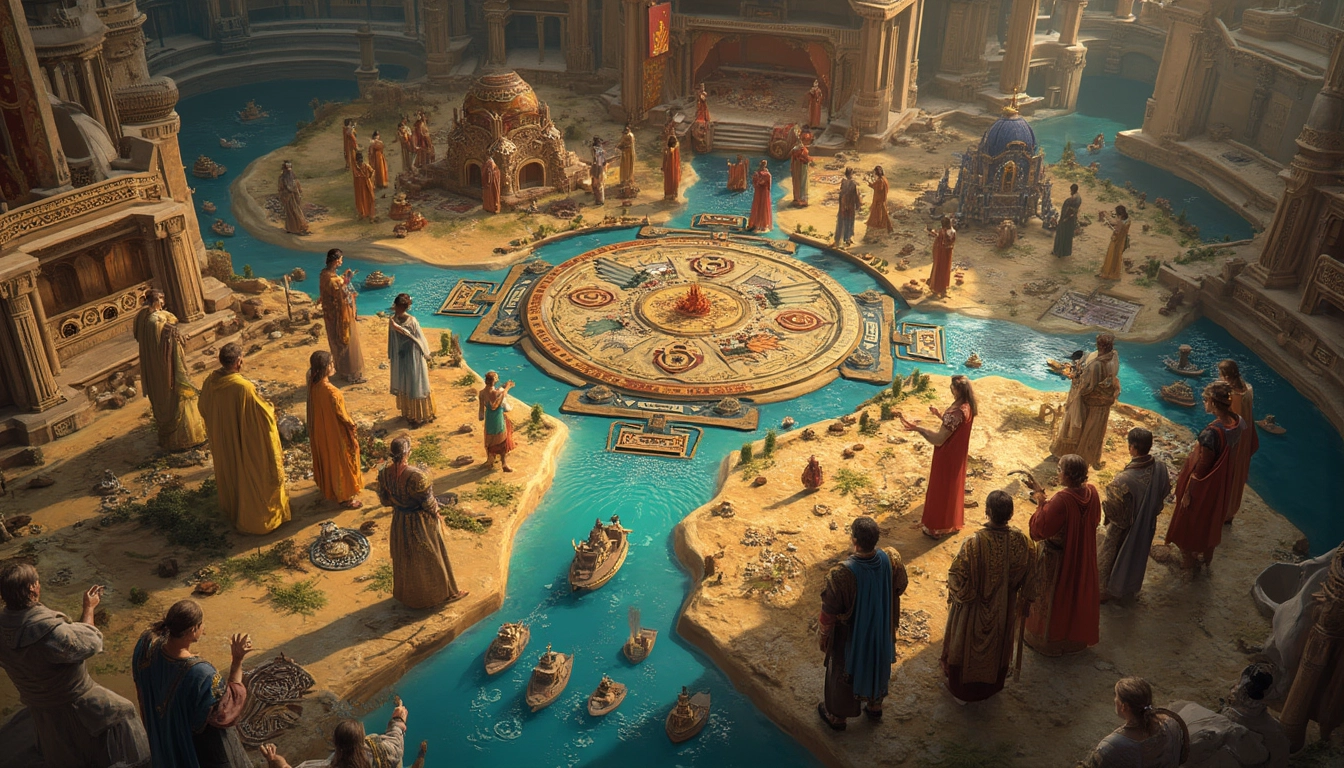
Civilization 7 Revolutionizes Strategy Gaming with Three Age System
Civilization 7 introduces groundbreaking changes to the beloved strategy game series with its innovative three-age structure and enhanced gameplay mechanics. The game transforms traditional 4X gaming by implementing dynamic age transitions, specialized towns, and fully navigable rivers, creating a more immersive and strategic experience for players.
Table of Contents
Key Takeaways:
- Three distinct ages – Antiquity, Exploration, and Modern – each offering unique civilizations and gameplay systems
- Players can select different leaders and civilizations at the start of each new age
- Introduction of towns as specialized settlements adds depth to city management
- Fully navigable rivers create new strategic opportunities for trade and warfare
- Crisis events and Legacy Paths add challenging decisions and achievement tracking
The Revolutionary Three-Age Structure
Civilization 7’s three-age system represents a significant departure from previous titles. Each age – Antiquity, Exploration, and Modern – features its own set of civilizations, resources, and technologies. Players must adapt their strategies as they progress through these distinct periods, with civilization selection influenced by their previous age’s accomplishments.

Leaders and Civilization Flexibility
A revolutionary change comes in the form of unrestricted leader-civilization combinations. This innovative gaming feature allows players to mix and match leaders with different civilizations, including non-traditional choices like Benjamin Franklin. This flexibility creates unprecedented strategic possibilities.
Towns: A New Settlement Dynamic
The introduction of specialized towns adds a fresh layer to city management. These settlements serve as extensions of major cities, providing focused development opportunities. The gaming industry’s evolution is reflected in this sophisticated approach to territory management and expansion.
Navigable Rivers and Strategic Depth
The addition of fully navigable rivers transforms the strategic landscape. Naval units can now traverse rivers, creating new opportunities for trade routes and military maneuvers. This feature adds significant depth to city placement and territorial control decisions.
Legacy Paths and Crisis Events
The future of gaming takes shape with the introduction of Legacy Paths and Crisis Events. These systems track achievements and challenge players with difficult decisions during age transitions. Looking to automate your gaming content creation? Check out Latenode’s automation tools for streamlined content management.
Strategic Adaptation and Crisis Management
The game introduces crisis events at pivotal age transitions, forcing players to adopt Crisis Policies with challenging negative effects. This system tests players’ ability to adapt and maintain stability while managing the consequences of their choices. The following elements become crucial during crisis events:
- Resource management and allocation
- Diplomatic relationships with other civilizations
- Military readiness and defensive positioning
- Economic stability and trade network maintenance


